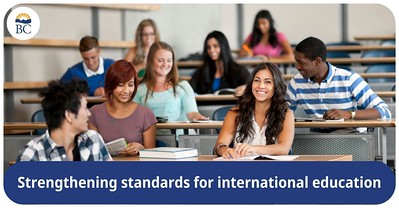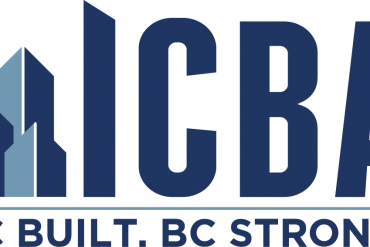The Province is taking action to eliminate exploitive practices and improve the quality of post-secondary education by strengthening quality standards and bringing in new safeguards for international students in B.C.
“International students come here for a good education, but too many are being exploited or taken advantage of,” said Selina Robinson, Minister of Post-Secondary Education and Future Skills. “That’s why we’re introducing more stringent requirements for institutions and robust safeguards to protect international students against bad actors, provide them with a better path to success, and make sure B.C. continues to attract the talented students we need to fill significant gaps in the labour market and drive our economy forward.”
The Province’s new measures will bring in higher standards and greater accountability for educational institutions in B.C. These measures will help ensure the institutions deliver a high-quality education and offer strong supports that students need to study and build a good, successful life in B.C. These new requirements will help prevent institutions from taking advantage of international students and will eliminate private institutions’ ability to host international students if they are unable to meet the provincial standards for quality education.
Key changes are:
- Pausing growth of institutions offering international education: The Province will pause approvals for two years, until February 2026, of new post-secondary institutions seeking to enrol international students.
- Enhanced compliance and enforcement: The Province will implement more frequent inspections of private post-secondary institutions to ensure that new and improved quality standards are met and that students are properly supported.
- Higher standards for private degree programs: To ensure students receive quality education, private degree programs will need to meet higher standards for approval. Standards include higher assessment criteria for degree quality, demonstrated labour-market need for graduates and appropriate resources, and student supports.
- New language requirements for private institutions: The Province is setting minimum language requirements at private training institutions to ensure new international students are better prepared for their educational and professional journey in B.C.
- Tuition transparency: Public post-secondary institutions will be required to post tuition levels for students for the entire time they are studying. This ensures incoming students know the entire costs of their education before they start their program.
“I have been fortunate to have a great experience as an international student in B.C. at Kwantlen Polytechnic University, which offers lots of supports for international students,” said Arjun Taneja, an international student at Kwantlen Polytechnic University working as an administrative assistant at DIVERSEcity Community Resources Society. “But some of my friends who have come here and attended some private schools have, unfortunately, had negative experiences. I’m happy to learn that there will be strengthened standards to ensure international students get the education they came to B.C. for, as many of us are here on our own at a young age and it’s nice to know government is looking out for us while we attend post-secondary.”
Work to address exploitive practices began in spring 2023. Since then, the federal government has announced limits on international student enrolment at post-secondary institutions, and the Province is working to align with these new requirements with the International Education Framework. The Province is working quickly to establish the systems needed for the new requirements set by Immigration, Refugees and Citizenship Canada, including a process to issue attestation letters to international student applicants.
“Today’s announcement is an important first step and an acknowledgment by the minister that international education in British Columbia needs more oversight,” said Melissa Chirino, chairperson, British Columbia Federation of Students. “International students need and deserve more protections when they come to Canada. We look forward to working with the minister over the coming weeks to discuss our vision for a public post-secondary system that is forward thinking and enables our institutions to adapt and thrive and deliver quality education to today’s and tomorrow’s learners as they were intended to.”
The Province will continue to work with students, institutions and newcomer services to eliminate exploitive practices that hurt international students and B.C.’s post-secondary education reputation.
These steps will help further ensure international students receive high-quality education in B.C. Further improvements are anticipated for the coming year to better align programs with B.C.’s labour-market needs and continue to strengthen protections for students to prevent exploitation.
Quick Facts:
- B.C. has approximately 545,000 post-secondary students, which includes domestic and international students in the public and private sectors.
- Of those, more than 175,000 are international post-secondary students from more than 150 countries.
- Approximately 82,000 international students in B.C. are at public post-secondary institutions, and approximately 94,000 international students are at private post-secondary institutions.



